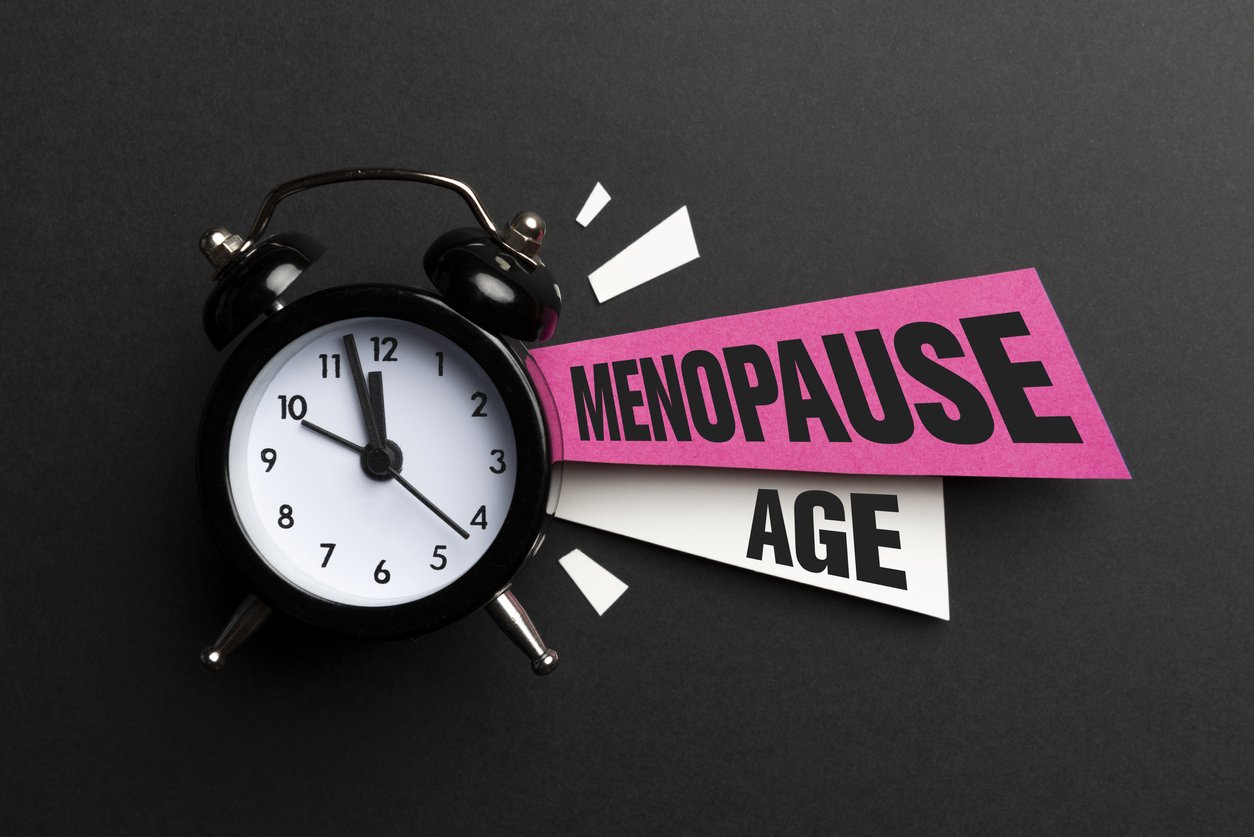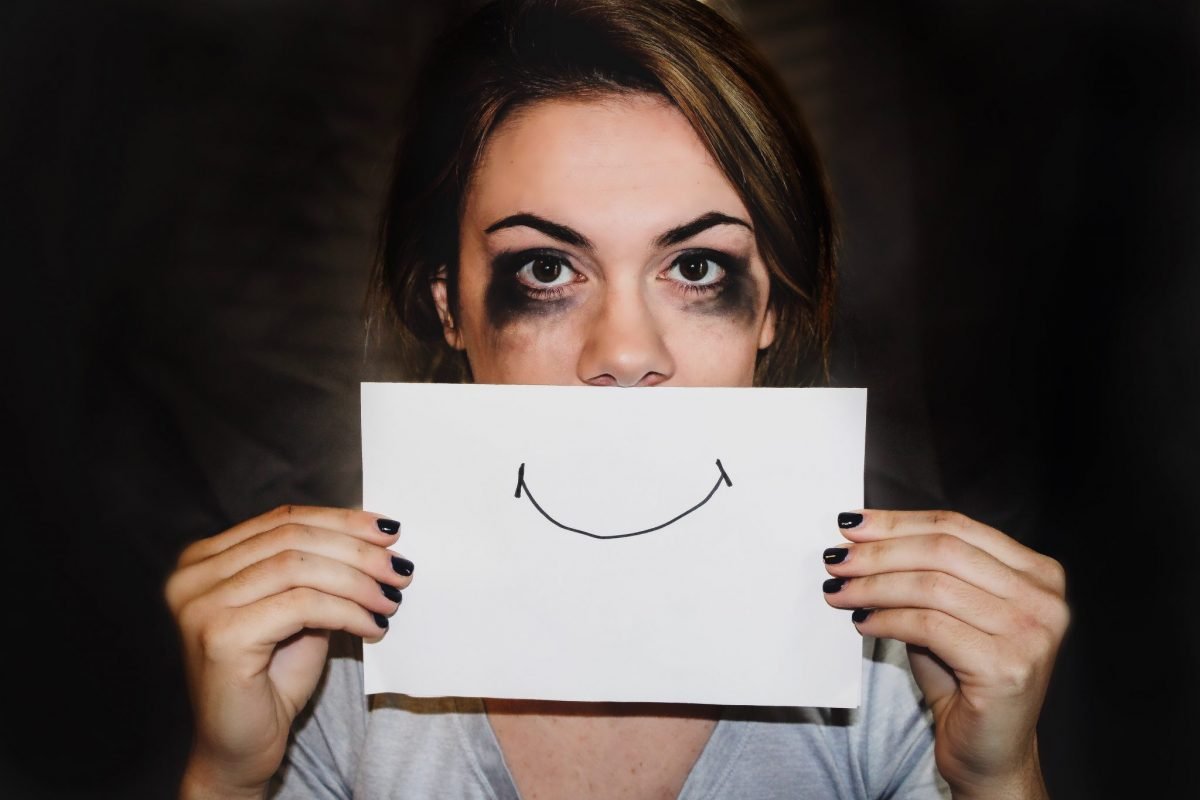Your Menopause Questions
Your questions answered by Menopause expert Kathy Abernethy
Click the subjects below to show questions and answers.
Mental health
Q: I have had a serious time to the point the depression and anxiety was unbearable what can I do to recover as it is really has taken my quality of life.
A: I am sorry to hear this. Depression and anxiety may worsen due to hormonal influences and you really need the opportunity to discuss this with a kind doctor and explore whether you need treatment, either instead of or as well as HRT. HRT is not a treatment for depression, although it may improve mood; you may need to look at CBT, or after assessment, modern antidepressants. You may need to treat the depression/anxiety alongside other menopausal symptoms, if you have any. Please do seek help from your GP.
Q: I am 49 and am experiencing hot flushes, it’s hard to know if I am menopausal as I’m on the mirena coil and haven’t had a period in over 10 years . My main concern is my severe low mood and irrational mood swings that is affecting myself and the people around me,my doctor has recommended Citalopram which is an antidepressant,but I feel reluctant to go down this path ,is there anything that you could recommend.
A: At 49 years and experiencing hot flushes? You are probably in perimenopause, even though the Mirena is masking periods. Low mood and mood swings are sometimes helped by HRT and NICE Guidance in the UK says antidepressants should not be first line for this unless your doctor thinks you are also depressed or could not use HRT for some reason. Perhaps think about whether you are ready to give HRT a try for this? CBT (Cognitive Behavioural Therapy ) might help too – here is a link to a self help fact sheet about it, which many women have found very helpful.
Q: I’ve been told that during the menopause you start to lose your memory and forgetful Mine is so bad I can ask a question and then ask it 20 minutes later!!! I will still forget the answer anyway ! Is this normal please?
A: Hormonal changes during the peri menopause (the months or years around the last period), can for some women cause memory problems. Usually it is small irritating things, so you might frequently forget words and names, or where you have put things but not likely to forget your address, for example, or your partners name. It is frustrating and many women say that it is time to start lists, reminders as well as try to keep stress levels low and allow yourself time and patience. The good news is that it usually improves with time, but if accompanied by other bothersome symptoms too, might improve with use of HRT.
Q: My short term memory is getting worse by the day – I know that my colleagues have noticed and it’s embarrassing. I keep making excuses or make jokes but I just want to cry. What can I do?
A: Memory is a common menopause symptom and might be due to hormones or to tiredness or to stress. Anxiety about it makes it worse, make changes like using reminders and notes more often without embarrassment and try to avoid stress, so leaving more time for tasks. Reassuringly it does usually improve with time. If accompanied by other symptoms, memory is one thing that HRT might improve. As for embarrassment, remind yourself that this is natural and that it is seldom important stuff we forget, but the little things, which is why reminders often help.
Q: I feel lost, I feel I have no purpose, I feel there is no joy in my life, although I know I have a wonderful family which makes me feel worse as I really have nothing to complain about! I really feel what is the point? How can I get out of this cycle?
A: Have you spoken to your doctor about this? Or maybe worth giving Kathy Abernethy a call, she charges £10 donation fee for a telephone conversation and is extremely helpful, as a qualified menopause nurse with over 20 years experience in menopause, she is also the Chairman of the menopause society. Her details are: www.kathyabernethy.com – I have personally gone to see her and her time and advise is totally worth the money. It does sound like you are lacking in hormones and maybe a low dose of HRT would benefit you. Don’t feel despondent there is a lot of help out there!
Q: Can anxiety and panic attacks be linked to the menopause
A: Yes anxiety is something that I have never experienced yet whilst going through the menopause have suddenly had a couple of panic attacks, do not worry but maybe have a discussion with your doctor about your fears, who should be able to prescribe HRT. HRT will definitely ease the anxiousness, it certainly helped with mine.
Q: Much to my own surprise (having had horrendous PMS for decades), I’ve had a fairly smooth ride in terms of physical symptoms of the menopause – no heavy perimenopausal bleeds, just a few waves of hot flushes but no night sweats, no disrupted sleep and seemingly, no memory problems etc.
However, now I am nearly 52, my mood is very very low. I feel very sad and empty about mistakes and missed opportunities in my life and tussle with a lot of feelings of guilt and shame (and jealousy).
About to see my GP and wondering if this is depression separate from my hormone changes or closely related. (There are a number of objective life factors that I’m struggling with). Is there any particular SSRIs that are recommended in this situation? (I don’t particularly suffer from anxiety – though I have my moments).
I’m more than 18 months on from my last period.
A: It is good to hear that the physical side of menopause is not too bad. When menopause comes at the usual time (around 50), it coincides with life events and ageing, both of which can play a real role in our emotions and psyche. Any low dose SSRI will help depression but NICE Guidance in the UK suggest that low mood (rather than clinical depression) at menopause should be treated first with HRT or Cognitive Behavioural Therapy (CBT). With your GP it will be helpful to really assess if you have depression or hormone related low mood. This can be hard, but many women can tell the difference themselves, recognising when honest, the stress factors or life events that neither HRT or antidepressants will change. CBT or counselling might be a better option in that case. Here is a link to a leaflet about CBT and menopause.
Tiredness
Q: I feel exhausted all the times and incapable of making a decision about anything as well as having really poor memory recall. I am a solicitor in a senior and stressful role and have a 3 year old and 14 year old. Getting up in the morning becoming increasingly difficult and life feels completely out of kilter. Could this be the menopause? I still have a period every month. Don’t really want to take medication. What are the alternatives?
A: As you approach 48 years you are almost certainly perimenopausal and whilst for some women this non problematic, it does sometime signal the beginning of menopausal symptoms, so yes, this could be menopause. Struggling with this at work and with children, it is not surprising it is taking its toll. If you want to avoid medication, you need to address each symptom, eg tiredness – could you share the load, do you take time for yourself and are you realistic with expectations on yourself? Memory is a common menopause symptom and might be due to hormones or to tiredness or to stress. Anxiety about it makes it worse, make changes like using reminders and notes more often without embarrassment. You could try a supplement such as Red Clover (eg Promensil or Menopace Red Clover) at a 80mg dose as general menopause help, if for you, HRT is not an option.
Libido
Q: Can anything be done about my total lack of libido? My Dr isn’t interested, I now feel absolutely sexless, and I hate it. I am 54.
A: There are many reasons for poor sex drive, hormone loss is just one. Relationships, time, stress and discomfort can all contribute. Take time to ask yourself what it might be for you causing this and then try to address it – do you need more times of intimacy with your partner, do you have unresolved relationship difficulties, is sex painful, has sex just got pushed out because of busy lives? Do you have other priorities? HRT with or without testosterone, might help some women if all these issues are first discussed.
Peeling Nails
Q: I’m postmenopausal approx for a year and have a problem with ‘peeling’ nails where top layer peels away so nails are soft and brittle – I read this may be due to drop in oestrogen? I eat a balanced diet plus biotin supplement and look after my health generally but nothing seems to be helping. Any advice please?
A: This sounds like a general health issue, so look carefully at whether you are on a selected diet and missing out on nutrients and vitamins. Ensure a good calcium intake and if vegetarian, consider how you are getting iron.Try to get enough sleep too.
Weight gain
Q: Since starting HRT – evorel/sequin patches two months ago I seem to have put on quite a lot of weight, approx 8 pounds mainly in the tummy area. Is this a symptom of HRT or because of the menopause?. I’m seriously considering stopping HRT if this is the reason for the weight gain.
A: HRT does not usually cause weight gain but some women find one suits them better than another, so after a couple of months it might be worth trying a different HRT (ask your doctor) but don’t be surprised if actually it is life itself causing weight gain ,eg lower metabolism as we age, less exercise, enjoying being social and eating out, Some HRT does cause bloating, so that might be resolved by changing HRT too. Honesty is important so, had the weight started to creep on before and it’s only now you’ve really noticed? Losing weight through menopause is hard, but with support can be done, albeit much more slowly than when younger.
Q: I have just changed form a all in one tablet to a pump estradiol and a tablet progesterone as I have gained about a stone in weight on the combined pill of Hrt So allegedly taking hrt in gel and pill format doesn’t make you put on weight and give you hot flushes? I am so confused as get conflicting/or no advice from my local Gp it’s like sticking a pin on a donkey and hope for the best! When I bring up the subject of Hrt among women who are older then me I am 53 they don’t want to talk about it why is that it’s very normal why do women know so little about HRT?
A: HRT alone is not usually a cause of a lot of weight gain; menopause itself can do that and so does ageing and changes in diet and patterns of exercise. Some women notice a bloating with HRT and others a change in shape, perhaps bigger on the boobs particularly.One HRT might be better for you than another and the gel with natural progesterone seems to be good for many women. Containing natural oestrogen and progesterone, this type of HRT closely mimics the body’s own hormones which seems to suit many women. One pump is a low dose and may be enough, but may not control moderate symptoms, two pumps is standard. It is often worth starting low and going up only if needed. Once settled onto it, you should notice an improvement in flushes. As to discussing it, as women we are getting better about this, but still many are embarrassed to do so.
Joint pain
A: During the perimenopause/menopause, our Oestrogen levels diminish. Oestrogen is important in maintaining bone and joint health, it is thought that it minimises swelling around the joint. It may be a good idea to discuss with your doctor a low level Oestrogen HRT supplement. I have experienced similar joint issues and although I was put into a surgical menopause, I knew I had no hormones! The symptoms come out at different stages. When the level of HRT that I am on needed to be increased (which it sometimes does) the joint pain worsened.
HRT
Q: My periods stopped 3 years ago and I felt fine at first but now I am having awful palpitations, night sweats and migraines. I feel sluggish, low in mood and tired most of the time. I have tried 2 different HRT preparations. The first one caused my blood pressure to rise and the second made the palpitations worse. Every day is a battle. How long will this go on? I am 56.
A: You have described what for some women are typical menopausal symptoms. Sometimes they go on for much longer than women expect which is one reason why women seek treatment.Palpitations are common but should be checked out to be sure there are no heart problems.Some women do try several types of HRT before finding one that suits, don’t be put off, perhaps ask for a low dose and in patch or gel form?
Q: I’ve recently asked my Dr if I could try another HRT medication as I was feeling very anxious /depressed and a return of the dreaded hot flushes just before my monthly bleed, she was happy to do this and I’m hopeful this will help, however I would like to know more about how long I can take HRT for and do you have any advice about diet, I’ve always been very slim but Ive gained weight with the menopause and can’t seem to get if off?
A: HRT alone is not usually a cause of a lot of weight gain; menopause itself can do that and so does ageing and changes in diet and patterns of exercise. Some women notice a bloating with HRT and others a change in shape, perhaps bigger on the boobs particularly.One HRT might be better for you than another and the gel with natural progesterone seems to be good for many women. Containing natural oestrogen and progesterone, this type of HRT closely mimics the body’s own hormones which seems to suit many women. One pump is a low dose and may be enough, but may not control moderate symptoms, two pumps is standard. It is often worth starting low and going up only if needed. Once settled onto it, you should notice an improvement in flushes. As to discussing it, as women we are getting better about this, but still many are embarrassed to do so.
A: If you have only tried one type of HRT, it might be worth trying another – one may work better for some women than another and it very common to need to try a couple to find one that works for you. Itchy skin can be an indication of not enough HRT, but you do need monitoring about this. Worth checking with your GP that your thyroid is well controlled too – that too can contribute to itching. So see your GP, try to find the one your practice that has a menopause interest.
Q: I wanted to share a recent experience noting it’s a shame that not all GPs are as well-informed as you. I came across your informative video and wanted to share a recent experience noting it’s a shame that not GPs are as well-informed as you.
Recently attending my GP practice and having taken bloods including FSH my result came back fine apparently 7.1. In my consultation today I made points referenced from your video that over the age of 45 and symptoms presented exploring suitable HRT would be helpful? I discussed the options of bio dermal creams and those that are derived from yams. My gp smiled all the way through what I said and then mentioned and said she knew nothing about these and had never prescribed any of her patients such a cream???? To be honest I was blown away as I thought this would be easy to discussion to have but I found myself having to challenging her response. She said that I needed to bring in the information/evidence around these and then she would investigate.
I persisted trying to recall all the facts learnt from your video and finally she prescribed Ovestin 1 mg and Utrogestan 100 mg and order for more bloods (ESR, 25-Hydroxy, Folate Level, B12, Citrullinated peptide antibodies and antinuclear antibody). I am confused being prescribed hormones before additional tests are done and how will I know they are right? GP knowledge is varied in this area and patients should not have to research and provide their doctors with information is this right?
A: It is good to hear that the physical side of menopause is not too bad. When menopause comes at the usual time (around 50), it coincides with life events and ageing, both of which can play a real role in our emotions and psyche. Any low dose SSRI will help depression but NICE Guidance in the UK suggest that low mood (rather than clinical depression) at menopause should be treated first with HRT or Cognitive Behavioural Therapy (CBT). With your GP it will be helpful to really assess if you have depression or hormone related low mood. This can be hard, but many women can tell the difference themselves, recognising when honest, the stress factors or life events that neither HRT or antidepressants will change. CBT or counselling might be a better option in that case.Here is a link to a leaflet about CBT and menopause.
Q: I am 49 soon to be 50, at the start of this year I have started to get hot flushes mostly at night. They are not unbearable but I do have other symptoms of bloating and slight weight gain around the middle which is uncomfortable at times. Since last year I have had the bloating and have had tests done ovary scan etc.. which were all fine, my periods were slightly erratic too, my last period was in December which is the longest time I have gone without one, the only other symptom I have is low libido. I am careful with my diet, in fact I am a Health coach, so am aware this will help ease symptoms but am wondering how further I can support myself. I have been to the doctor to get my hormones tested they weren’t very helpful and suggested I take an antidepressant for the hot flushes! the tests have came back normal. I am considering going privately to a specialist in bio-identical hormones as I like the idea of balancing out my hormones naturally rather then synthetically with HRT. I understand that HRT does have its benefits but have reservations about what it is made from, can you explain what it contains.
A: HRT which is licensed and regulated in the UK and prescribed both privately and in the NHS is most usually derived from plant extract. There are one or two products that are produced differently but if you ask for plant based products, there are plenty to choose from. It will contain oestrogen or progesterone or both. Be careful with the word ‘bioidentical;’ which means different things to different people. Licensed prescribed HRT is available as bioidentical, so mention that to your doctor if that is what you prefer. Some clinics offer tailor made or ‘ compounded bioidenticals’. These are unregulated in the UK and whilst they may be fine to use, there is no evidence supporting their safety or efficacy. Such clinics should not be claiming them to be safer than conventional HRT.
Bleeding
Q: I am in such a state at the moment. I have the Mirena coil and I’m on HRT but still bleed. It did stop for over 2 years which was an amazing relief, but now it’s back heavier and worse than before. The flushes have calmed but the weakness to move some days is too much to bear. The doctor just doesn’t listen and I’m exhausted.
A: A Mirena coil is usually a good choice as it controls bleeding really well. If used with HRT it should be replaced after 4-5 years, depending on if you are bleeding or not. If you continue to experience prolonged bleeding with a Mirena that has been in fewer than four years, you need to have a full assessment, including a discussion as to whether you are still on the best HRT for you. Perhaps ask your doctor if you need to see a gynaecologist to review your options.
Q: I have been advised to have Mirena coil fitted and progestin cream for symptoms of menopause, I am 49 and have very heavy painful periods which can be irregular! And have endometriosis in the lining of womb Also anxiety depression and fog brain – will this Mirena coil help? And how?
A: The Mirena coil will almost certainly help with the heavy and irregular periods. There can be a ‘settling in’ phase but after a few months, the bleeding lessons considerably and may even stop altogether, which most women find appealing. The Mirena contains progestogen, so I suspect the cream you have been recommended might be oestrogen gel, rather than another progestogen. Check with your doctor, but if so that will aim to relieve the mood symptoms.
After the menopause
A: I don’t have a miracle answer I am afraid, but I do have several questions I would want to ask if you came to see me. Have you seen a specialist? if not ask your GP if there is one near you; a specialist will evaluate your symptoms, make sure nothing is being missed and perhaps consider psychological support too. You do not give your age, but if you are under 45 yrs, you may need doses of HRT that might seem high to women going through natural menopause around 50. Have you had hormone levels checked if on patch or gel, to see if you are a poor absorber’? Some women can use as much gel as they are advised and still not get a decent dose through the skin. So my advice is to try and find a menopause specialist near you who can try and unravel what is hormonal, what might be related to other issues and which HRT might work best for you.
A: There is a NHS menopause clinic at St James Hospital, Leeds and a private one at Nuffield Hospital Leeds – give each a call to get details. I am not aware of others, but your GP might know of one closer to you.Explain to your GP that you really appreciate their help, but would like to see someone who sees menopausal women all the time.

Kathy Abernethy
Kathy Abernethy MClinSci RN is a registered Menopause Specialist, has a Masters degree in community gynaecology and reproductive health care, and is current Chairman of the British Menopause Society.







